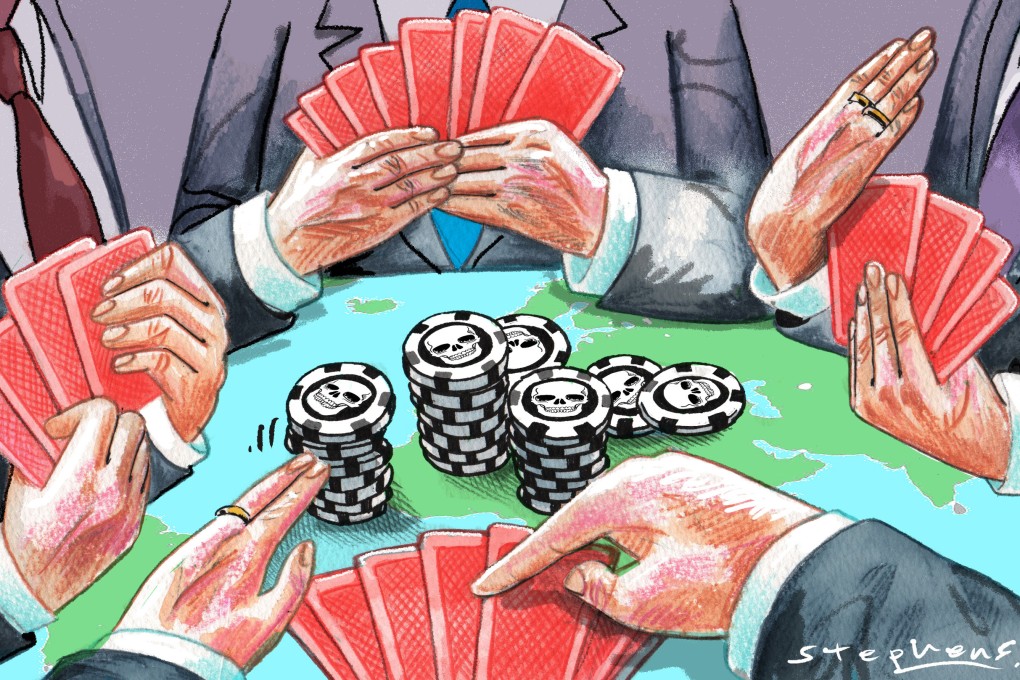Opinion | Ukraine crisis: in the Great Game of bluff, how likely is a full-scale war?
- Nato’s overriding consideration is that nobody wants to shed blood for Ukraine, and Putin knows it
- The Russian president is gaining a victory of sorts by making it highly unlikely that Ukraine will join Nato. Could he call Biden’s bluff and order a full-scale attack?

The spectre of armies shifting positions and moving into place on distant sides of the world, and of diplomats crafting statements and shuttling about, invokes images from the last century. The idea of Europe in flames, Asia in danger and the Middle East seething suggests a perpetual state of global crisis while the players contemplate their next moves.
The analogy of a card game may work better as cagey leaders wonder how much to lose or gain from a stand-off that could get a whole lot worse than the entry of Russian troops into Ukraine’s southeastern Donbas region and artillery barrages and feints along Ukraine’s frontier with Russia and its quasi-satellite, Belarus.
On their side, the leaders of the 30 member states of the North Atlantic Treaty Organization by no means think alike, despite protestations to the contrary.
